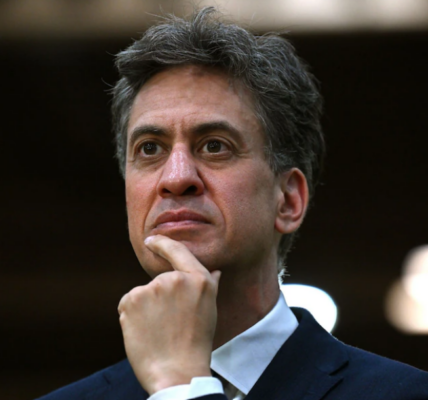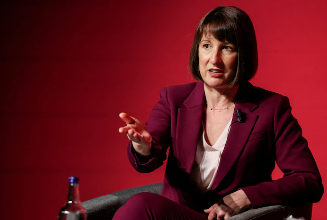Wetherspoon boss issues price rise warning after Labour’s tax raid budget – as hospitality industry goes into ‘survival mode’_Nhy
The boss of Wetherspoon has warned of price rises across the hospitality sector following Labour’s tax raid on businesses in the autumn Budget.
Sir Tim Martin, the chairman of Wetherspoon, said his pub chain’s tax and business costs are expected to increase by about £60 million over the next tax year.
This will include an estimated 67% increase in National Insurance Contributions, which was raised by 1.2p from 13.8 per cent to 15 per cent, while the starting threshold was lowered from £9,100 to £5,000.
Business leaders have told the Government they are now in ‘survival mode’ following Labour’s first budget in 14 years that saw Chancellor Rachel Reeves raise taxes in the UK to their highest level in history.
Fellow pub chain Fuller’s has declared that rising costs could see its annual investment halved from £60 million to £30 million, while Young’s has also declared it may be forced to follow suit.

The boss of Wetherspoon has warned of price rises across the hospitality sector following Labour’s tax raid on businesses in the autumn Budget.

Chancellor Rachel Reeves last week raised taxes in the UK to their highest level in history

Business leaders have told the Government they are now in ‘survival mode’ following Labour’s first budget in 14 years (File image)
Speaking about the Budget’s impact on business, Tim Martin said: ‘Cost inflation, which had jumped to elevated levels in 2022, slowly abated in the following two years, but has now jumped substantially again following the Budget.
‘All hospitality businesses, we believe, plan to increase prices, as a result.
‘Wetherspoon will, as always, make every attempt to stay as competitive as possible.’
Wetherspoon said its sales grew about 6% in the 14 weeks to November 3, compared with the same period last year. Mr Martin said this marked “record” sales for the first quarter of the group’s financial year.
The company will open nine pubs this year, including at London Bridge station and Fulham Broadway underground in London and Manchester Airport, and has sold five pubs in 2024.
Elsewhere, during a meeting with leaders from the retail, leisure and food and drink sectors, Business Secretary Jonathan Reynolds was told the Budget had exacerbated ‘an avalanche of costs’ on businesses in the next year, according to The Times.
Tax rises will cost business more than £1 billion in increased costs, while the 6.7 per cent increase in minimum wage would set them back a further £1.9 billion.
Greene King boss Nick Mackenzie also told the Labour Cabinet Minister that the NI rise would cause ‘a £20 million shock’ to the pub chain, while others said that hiring a part time worker will now cost 73 per cent more in taxes.

Business Secretary Jonathan Reynolds who has been told the Budget has exacerbated ‘an avalanche of costs’ on businesses in the next year

Greene King boss Nick Mackenzie also told the Labour Cabinet Minister that the NI rise would cause ‘a £20 million shock’ to the pub chain
Last week Rachel Reeves presented her first Budget, which she said met the Government’s promise not to increase taxes for “working people”.
But she introduced £40 billion a year in extra taxes to put more money into schools, hospitals, transport and houses.
In another blow to the hospitality sector, Reeves also announced that she would be cutting draught duty by 1.7 per cent.
The move has been described as ‘an irrelevance’ by industry bosses who have slammed her increasing of employer’s National Insurance Contributions (NICs) and the National Living Wage.
Tim Dewey, chief executive of the Landlord brewer, has argued that any price decrease brought about by the reduction in draught duty would be immediately cancelled out due to increased tax rates for employers.
Mr Dewey stated: ‘There’s absolutely no question that the cut in beer duty is really an irrelevance relative to the price pressure (the Chancellor) has put into the pub industry’.
He added that draught duty was a ‘pass-through’ cost, meaning that the consumer carries its burden. Therefore, a reduction in duty results in no tangible savings to brewers or pubs.


During her budgetary speech last week, Ms Reeves blamed the UK’s economic woes on the Conservatives

The Chancellor’s new budget aimed to reduce the price of a beer by one penny, but it appears it may now have the inverse effect (Stock image)

Brewers have argued that increases in NIC and the national living wage will result in higher operating costs which will likely be passed on to consumers
However, the increases in NIC and the national living wage are costs which will be incurred directly by employers who will likely seek to recoup lost revenue through raising prices for consumers.
Other brewers such as Simon Webster, co-founder and chief executive of Derbyshire’s Thornbridge Brewery, also condemned the claim that pint prices would fall as ‘ludicrous’.
Speaking to the Telegraph, Mr Webster stated: ‘It’s the latest blow for the industry to be honest – hospitality has really been hit with these new rises. We will have no choice but to put the price of a pint up in the pubs and also out of the brewery.’
The unintended consequences of the Chancellor’s proposed taxation plans include the possibility of prices hikes on other alcoholic beverages, other sector leaders have warned.
Drinks such as wine, whisky and gin could all see retail prices rise in response to the increased tax expenses incurred by brewers as they seek to mitigate impact of the new NIC and living wage rates on profit margins.
Already an industry which was still on an arduous recovery path following the Covid-19 pandemic and the cost-of-living crisis, last week’s budget has been branded a ‘kick in the teeth’ by Diageo Managing Director Nuno Teles.
Reacting to the budget, Teles stated last week: ‘The Government has broken its promise and slammed even more duty on spirits. This betrayal will leave a bitter taste for drinkers and pubs, while jeopardising jobs.


The wine and spirits industry says it has been left reeling by Labour’s October Budget
The Wine and Spirit Trade Association (WTSA) were another to air their grievances with Ms Reeves’ budget, in particular the move to raise alcohol duty by the rate of Retail Price Index (RPI), which comes off the back of punishing duty increases in 2023 which saw the alcohol trade hit with its largest tax increase in almost half a century.
Arguing that raising taxes is often counterproductive and doesn’t align with revenue increases for brewers, the WSTA warned that the plans could stunt business growth and actually prevent the Treasury from clawing back much-needed funds to plug the £22 billion ‘black hole’ in government finances.
Miles Beale, the association’s chief executive, said: ‘We simply cannot understand why Government has said they are trying to protect income and in the next breath raising alcohol duty in a move that is totally counterproductive.
Going on to express his ‘bitter disappointment’ with Labour’s first budget in power since 2009, Mr Beale lamented the Chancellor’s decision to ‘not listen to business’.
‘Recent history has shown us that duty increases lead to price rises for consumers, a dip in sales and, as a result, fewer receipts for the Treasury. The near £500 million loss in alcohol duty receipts, in the last six months, couldn’t make that clearer,’ Mr Beale added.


